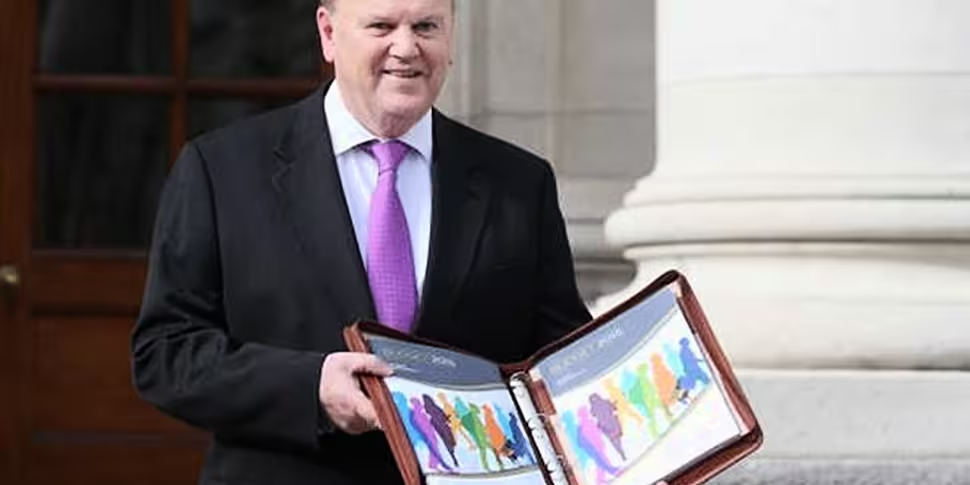The Government's being told this morning that its failure to stick to the plan for one last austerity budget last month will cost the taxpayer in the long run.
The Irish Fiscal Advisory Council (IFAC) had been pushing the coalition to implement a two billion euro adjustment, but its advice was roundly ignored by Michael Noonan and Brendan Howlin.
But the council says the decision now means that the national debt will be a whopping 10 billion euro higher in 2018 as a result.
Newstalk.com's Political Correspondent, Páraic Gallagher has been speaking to Fiscal Advisory Council Chairman, Professor John McHale:
In it's seventh assessment report the IFAC says that Ireland will likely accomplish the important milestone of reducing the deficit to below the 3 percent ceiling in 2015.
The Budget projects a deficit of 2.7 per cent of GDP in 2015 in line with requirements for exiting the Excessive Deficit Procedure.
But it says Budget 2015 reflects a "missed opportunity to move the public finances more decisively into a zone of safety by following through on previous plans".
It believes that the two billion euro adjustment would have brought the deficit well below the targets again - to as low as 1.5 percent.
The report says "All else being equal, the larger deficits result in the debt level being roughly €10 billion higher in 2018 than if previous plans had been adopted".
And the slap on the wrist for the Government doesn't end there - there's also criticism for the lack of a medium-term plan from this Government.
"If operated effectively, Ireland’s new budgetary framework can guard against pro-cyclicality in fiscal policy making that has contributed to damaging boom-bust cycles in the past. Credible medium-term plans for the public finances are an important part of the framework and are crucial to avoiding the mistakes of the past. Budget 2015 was marked by an absence of a well-specified plan for the public finances beyond 2015".
Meanwhile, the Taoiseach has responded to criticism about last month's budget by saying decisions are a matter for the Government.
Enda Kenny says the decisions to be made were ones for the Cabinet:









